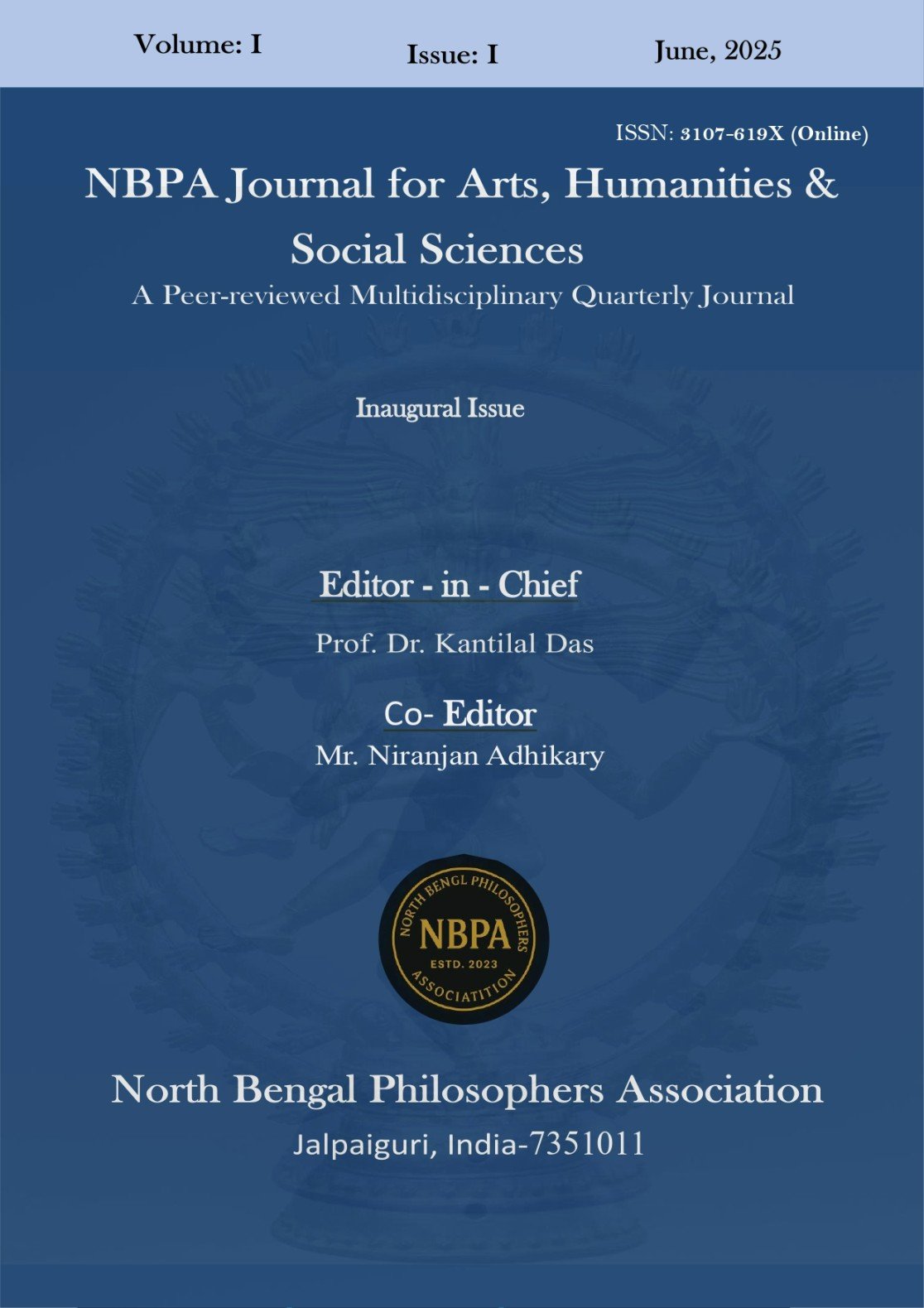The Evolution of Reason: Post-Kantian Transformations of Rationality
DOI:
https://doi.org/10.65842/nbpa.v1.i1.010Keywords:
Reason, Rationality, Evolution, Kant, Post-Kantian, Hegel, Focault, HabermasAbstract
This outline of “The Evolution of Reason: Post-Kantian Transformations of Rationality” is based on the idea that there is a profound philosophical history of the idea of reason, which indicates the evolution and dynamics behind this concept. This paper aims to illuminate the transformative impact of Immanuel Kant’s critical philosophy on the post-Kantian discourse surrounding the idea of reason. By keeping this in mind, it sheds light on the Kantian conception of reason to draw the lineage between Kantian and post-Kantian thoughts regarding this idea. It is evident that after Kant, many philosophers were immensely influenced by him and shaped their standpoint on rationality (whether by reconstructing or criticising his ideas). That is why, to fulfil the purpose of this paper, I have highlighted the evolution of the concept of reason by following some prominent philosophers of the 19th to the 21st century, viz., Hegel, Foucault, and Habermas. The analysis of the idea of rationality through the lens of these aforementioned philosophers reveals that this evolution of reason marks a significant philosophical transformation, placing rationality at the core of modern thought. However, this also illuminates that the concept of reason or rationality simultaneously faces criticisms, due to its destructive, dominating, and abstract nature. Hence, this paper intends to highlight the lineage, or the legacy of Kantian reason, that implies its evolutionary aspect and also continues to shape contemporary debates on rationality.
References
Sinha, J. (1984). A Manual of Psychology. New Central Book Agency (P) Ltd.
Hegel, G. W. F. (2018). The Phenomenology of Spirit. M. Inwood, Trans. Oxford University Press. Original work published 1807.
Hegel, G. W. F. (1990). Encyclopedia of the Philosophical Sciences in Outline and Critical Writings. A. V. Miller and A. Taubeneck, Trans. The Continuum Publishing Company. Original work published 1817.
Ferrarin, A. (2016). Reason in Kant and Hegel. In D. H. Heidemann (Ed.), Kant Yearbook, 8(1), 1-16. Walter de Gruyter.
Foucault, M. (2006). History of Madness. J. Murphy and J. Khalfa, Trans. Routledge. Original work published 1961.
Kant, I. (1996). An Answer to the Question: What is Enlightenment? M. J. Gregor, Trans. In M. J. Gregor (Ed.), Practical Philosophy, pp. 11-22. Cambridge University Press. Original work published 1784.
Rabinow, P. (2020). The Foucault Reader. Penguin Random House.
McIntyre, J. (2021). The Limits of Scientific Reason: Habermas, Foucault, and Science as a Social Institution. Rowman and Littlefield.
Lawlor, L., and Nale, J. (2014). The Cambridge Foucault Lexicon. Cambridge University Press.
Habermas, J. (1984, 1987). The Theory of Communicative Action. T. McCarthy, Trans. Beacon Press. Original work published 1981.

Downloads
Published
Issue
Section
License
Copyright (c) 2025 Beauty Das (Author)

This work is licensed under a Creative Commons Attribution-NonCommercial-NoDerivatives 4.0 International License.



